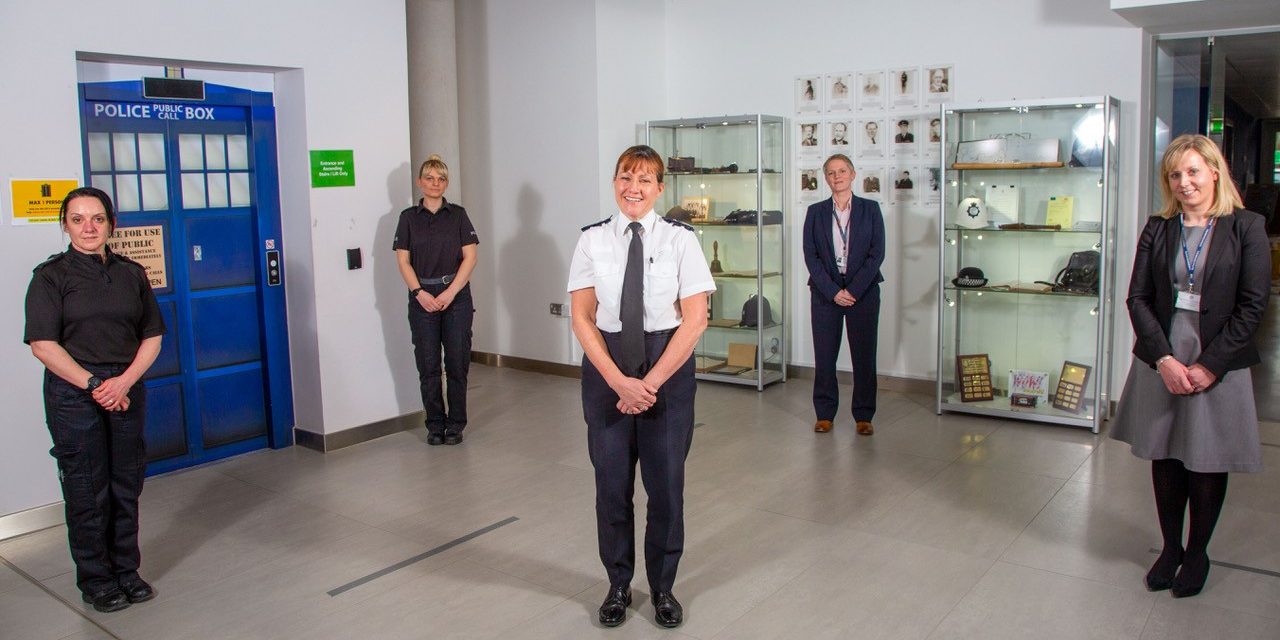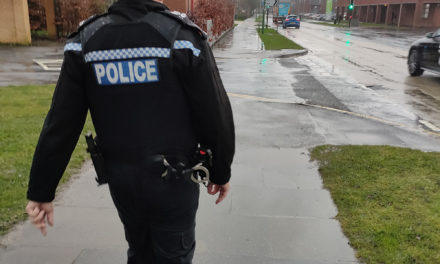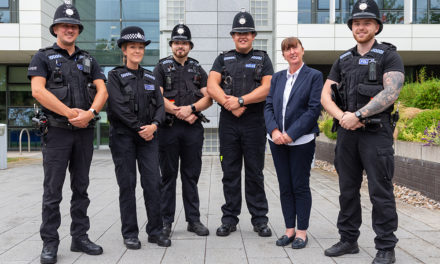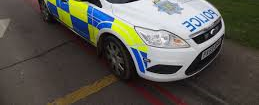The survey was carried out during April and May to listen to the concerns of women and girls across the force area and understand how safe they feel.
Out of the 1,300 responses received, the majority of women said they have experienced some form of inappropriate behaviour that made them feel unsafe with many saying they did not feel confident to report it.
When asked, 73% of respondents reported personal experiences of inappropriate behaviour such as comments or wolf-whistling and, of those, just under two-thirds reported this had happened within County Durham and Darlington.
However, only 4% of incidents had been reported to the police because, victims felt, such inappropriate behaviour was something women experienced throughout their lives.
The time of day was also a factor in responses with 79% of women saying they felt safe in our town centres during the daytime, but this fell to 24% during the evening and while 87% felt safe in their own neighbourhood during the day, it fell to 39% at night.
Chief Inspector Vicki Martin, from Durham Constabulary, said: “No woman should ever feel intimidated, harassed or unsafe.
“That’s why we carried out the survey – to enable women and girls in our community to have their say on their personal experiences, to tell us how safe they feel and what the police and our partners could do better.
“Some of the results make for uncomfortable reading, but we need to ensure we are doing the best we can to provide help and support to victims and survivors and make change where it is needed”.
She added: “With the night time economy due to return to full swing in the next few weeks with the expected lifting of the last Covid-19 restrictions, police and partners want to ensure that women both are safe and feel safe in our towns and villages and will continue to work together on this issue.
“We want people to consider how their behaviour impacts on others. For example, a wolf whistle is seen as a compliment by some but it really isn’t.
“It can be incredibly intimidating when it is aimed at a woman who is walking along alone.”
The survey is supported by Durham Police and Crime Commissioner’s Office, Durham County Council and Darlington Borough Council who continue to work with the force to educate people about their behaviour and the impact it has on women and girls.
Respondents were asked how they felt communities could be made safer for women and among those things they called for were:
- Environmental improvements such as improved street lighting, more CCTV and the creation of “safe places” within town centres
- Education to create a cultural change about what should and should not be considered as ‘normal’ behaviour towards women
- Tougher sentencing for sexual offences and efforts to make the judicial process less traumatic
- More visible policing and street wardens to tackle antisocial behaviour in public areas
- Self-help programmes so women could take positive action to increase feelings of safety and self-protection.
The survey coincides with the Home Office’s £25m Safer Streets 3 programme which invites Police and Crime Commissioners to apply for cash aimed at improving safety in public spaces.
Joanne Waller, Durham County Council’s head of community protection services, said: “We are grateful for the honest responses from women and girls in our community and I would like to reassure them that we will be working alongside our partners to take their feedback on board.
“Everyone should feel safe and secure in their community and these shared concerns will help us to make positive differences to their experiences going forward.”
Councillor Jonathan Dulston, deputy leader of Darlington Borough Council, said: “We’re working with Durham Police and other partners to ensure Darlington is a safe place to live, work and visit for everyone.
“The results of this survey will play a key role in helping us understand the concerns of women and girls and to ensure we can make any changes to make communities safer for them.”
Durham Police and Crime Commissioner Joy Allen added: “It’s disheartening to read the results of the survey and learn so many women and girls across County Durham and Darlington have been subject to harassment and felt unsafe in their own community.
“That is why we carry out these surveys, so we understand the thoughts and feelings of women and girls in our communities and we can continue to make areas safer.
“I am committed to having a more visible police presence on the streets and will work with partners to educate individuals on how their behaviour impacts others.
“As outlined in my manifesto I identified my commitment to introduce voluntarily recording of misogyny as a hate crime indicator. I have pledged to develop a violence against women and girls’ strategy aimed at changing attitudes and improving our knowledge of and response to the crimes that predominantly affect women and girls so that no woman needs to live in fear and girls grow up knowing they are safe.
“We are currently in the process of bidding for further funding from the Home Office for plans that are focused on helping make women and girls feel safer on the streets, as well as projects which could include an emphasis on changing attitudes and behaviours in local communities.”
To independently access support services, contact the Victim Care and Advice Service on 0303 040 1099, or visit victimcareandadviceservice.uk
The Meadows Sexual Assault Referral Centre offers support to those who have experienced rape or sexual assault. Call 03333 448283 or visit themeadowsdurham.org.uk









